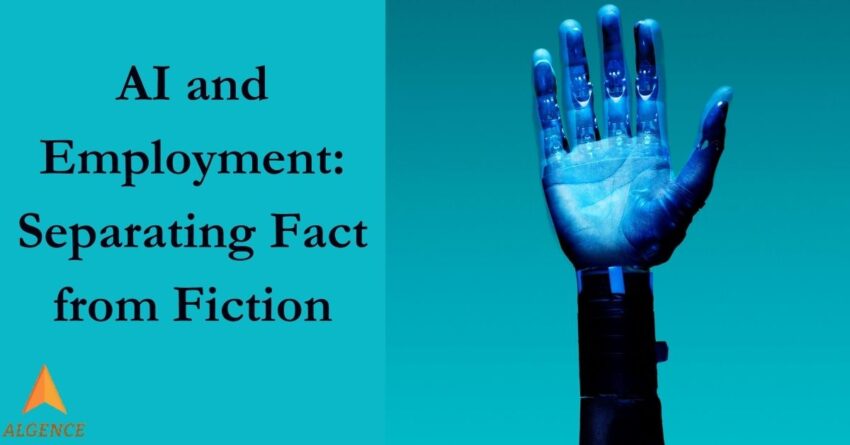The media love to spill ink sounding the alarm about AI and its potential to eliminate jobs. Doomsday consultants like McKinsey and tech bro’s like Elon Musk claim that AI poses a serious threat to the economy, and maybe even to humanity.
We don’t believe the hype at Algence. Here’s why.
AI is in its infancy. Sure the pace of change is quite rapid, and we’re impressed by the advances in the field. But we do not believe that present trends will abide forever. AI won’t just keep getting better and better, and AI innovation cycles won’t get faster and faster infinitely.
Think about it like this. The S-curve of innovation suggests that we are currently seeing AI take off and expand rapidly out of its infancy. Over the last century, humans invented automobiles, airplanes and then rocket ships. If it were 1970, you could look back and extrapolate the current rate of advances for another 50 years, and conclude that at the current pace, by 2024, humans would be travelling at the speed of light.
Of course, there are technological and physical limits. We think the same will be true for AI.
We think outsourcing remains a more significant threat to white collar jobs than pure AI. New tools can allow English-as-a-second-language workers to perform certain tasks and functions at the same proficiency as their English-as-a-first-language competitors. We don’t think AI will replace as many jobs in the short or medium term as we think they can be shipped overseas, where someone else will perform the same duties for much less money.
One last thing: everyone is branding their products as AI these days. It is a clever marketing trick, but we aren’t fooled. The latest trend is to turn everything, even simple landing pages, into chatbots. Instead of just pointing people to a website with all the relevant info on it, companies are placing the onus on the user to ask the right questions and think about next steps. These are fads we hope will fade away very soon.

